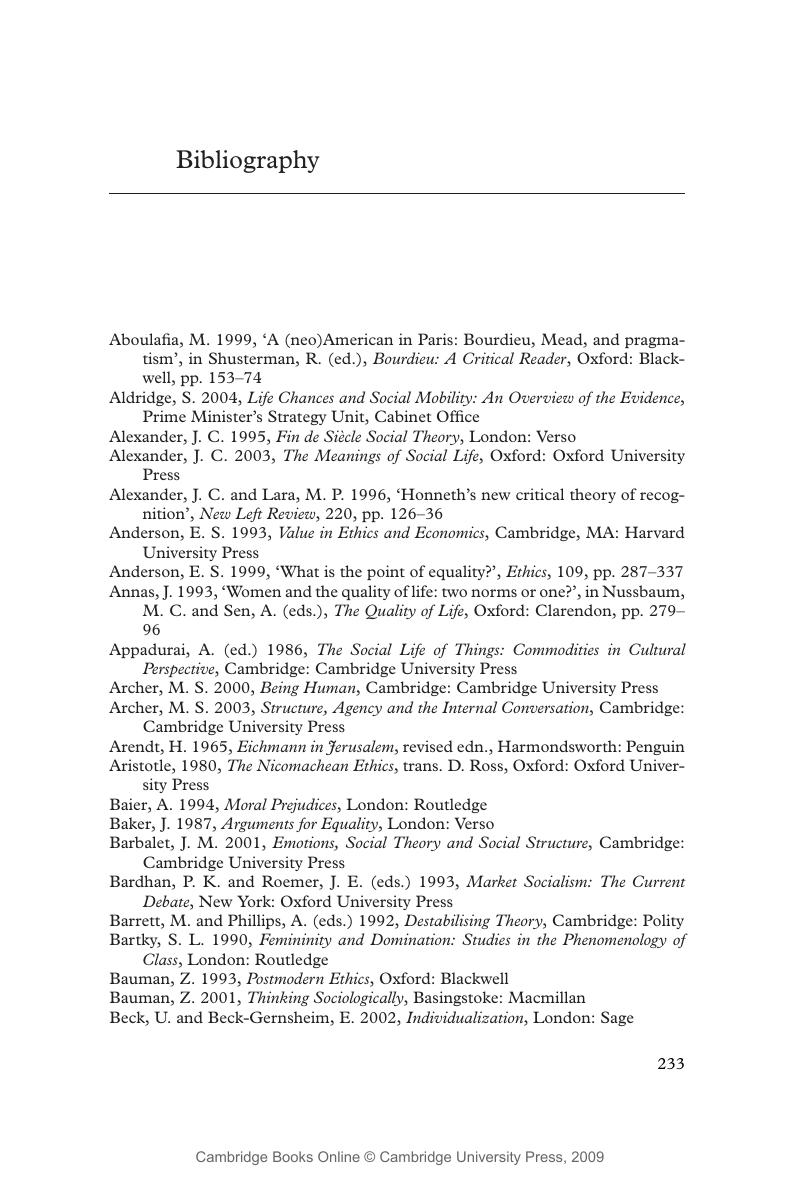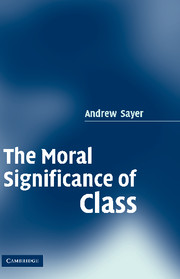Book contents
- Frontmatter
- Contents
- Preface and acknowledgements
- 1 Introduction
- 2 From the habitus to ethical dispositions
- 3 Recognition and distribution
- 4 Concepts of class: clearing the ground
- 5 Struggles of the social field
- 6 Moral and immoral sentiments and class
- 7 Responses to class I: egalitarianism, respect(ability), class pride and moral boundary drawing
- 8 Responses to class II: explanations, justifications and embarrassment
- 9 Conclusions and implications
- Bibliography
- Index
- References
Bibliography
Published online by Cambridge University Press: 22 September 2009
- Frontmatter
- Contents
- Preface and acknowledgements
- 1 Introduction
- 2 From the habitus to ethical dispositions
- 3 Recognition and distribution
- 4 Concepts of class: clearing the ground
- 5 Struggles of the social field
- 6 Moral and immoral sentiments and class
- 7 Responses to class I: egalitarianism, respect(ability), class pride and moral boundary drawing
- 8 Responses to class II: explanations, justifications and embarrassment
- 9 Conclusions and implications
- Bibliography
- Index
- References
Summary

- Type
- Chapter
- Information
- The Moral Significance of Class , pp. 233 - 242Publisher: Cambridge University PressPrint publication year: 2005



